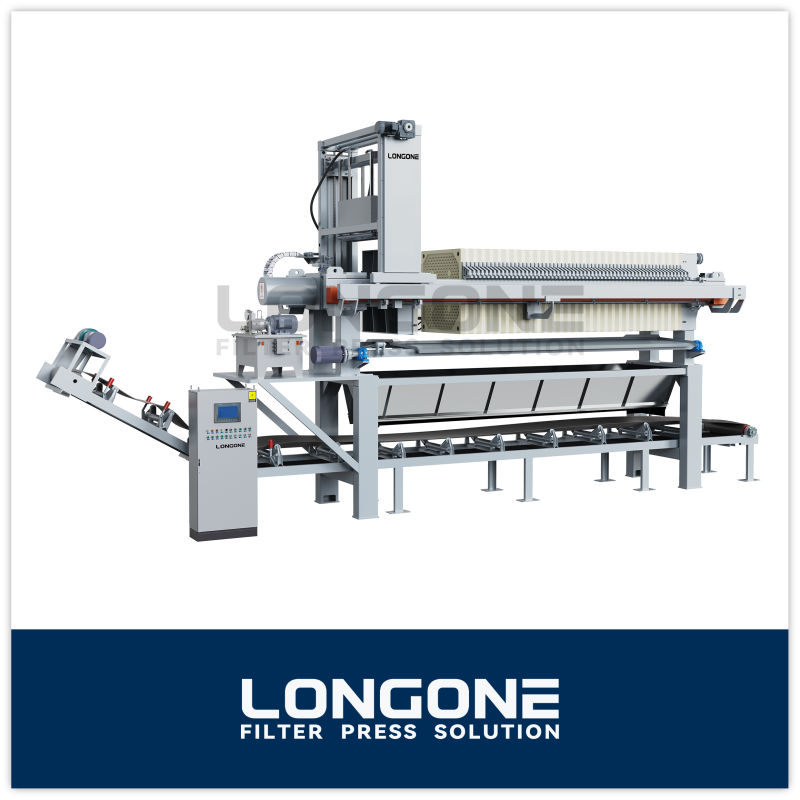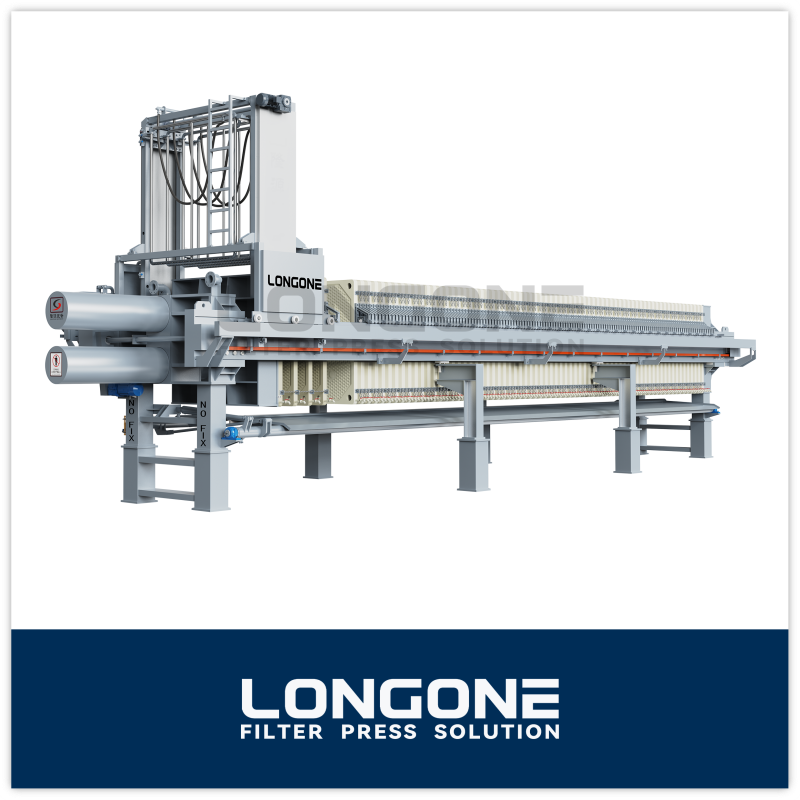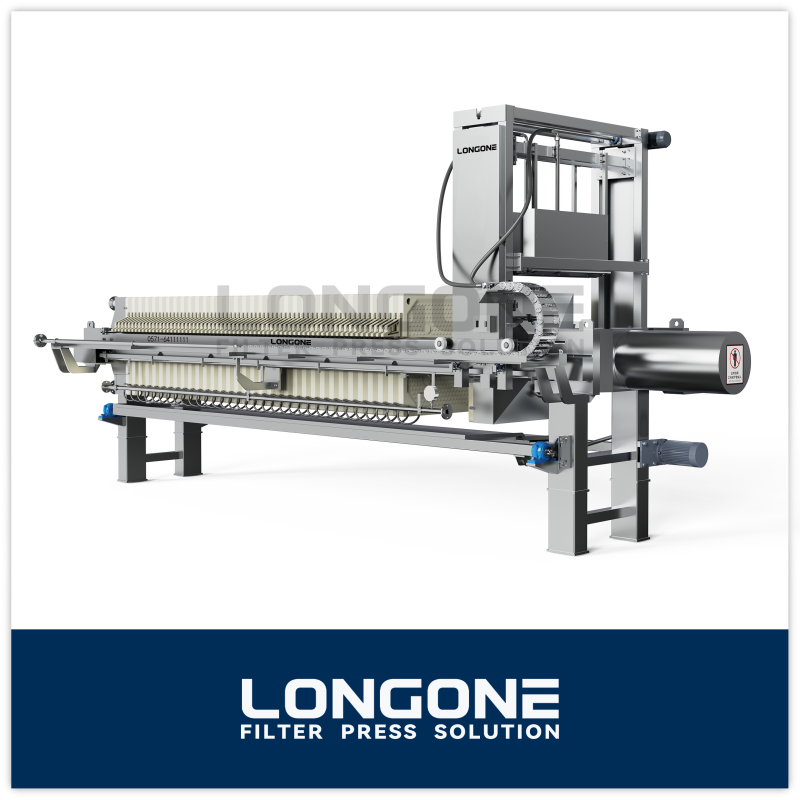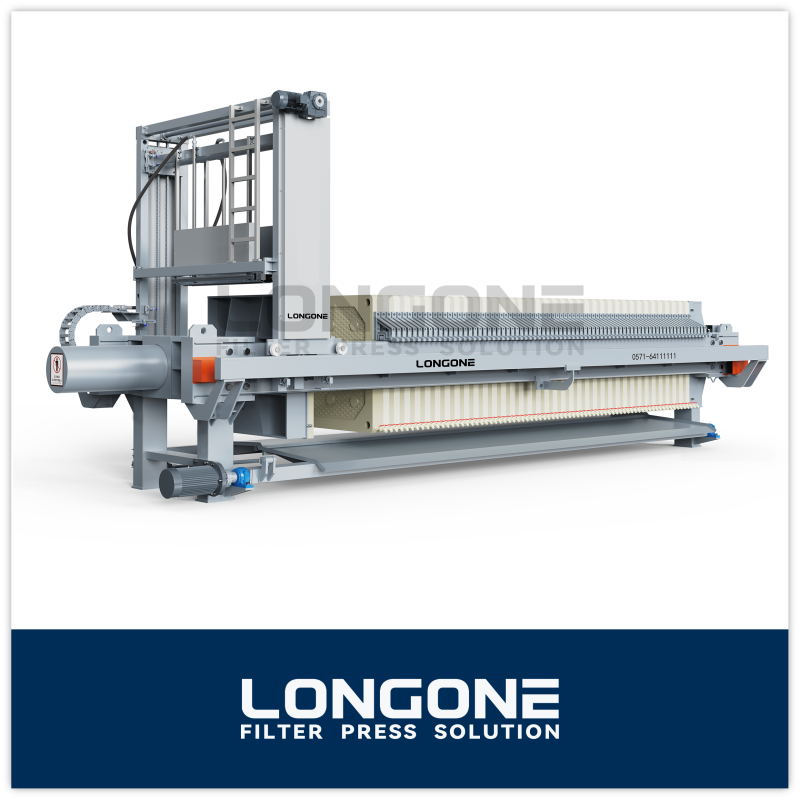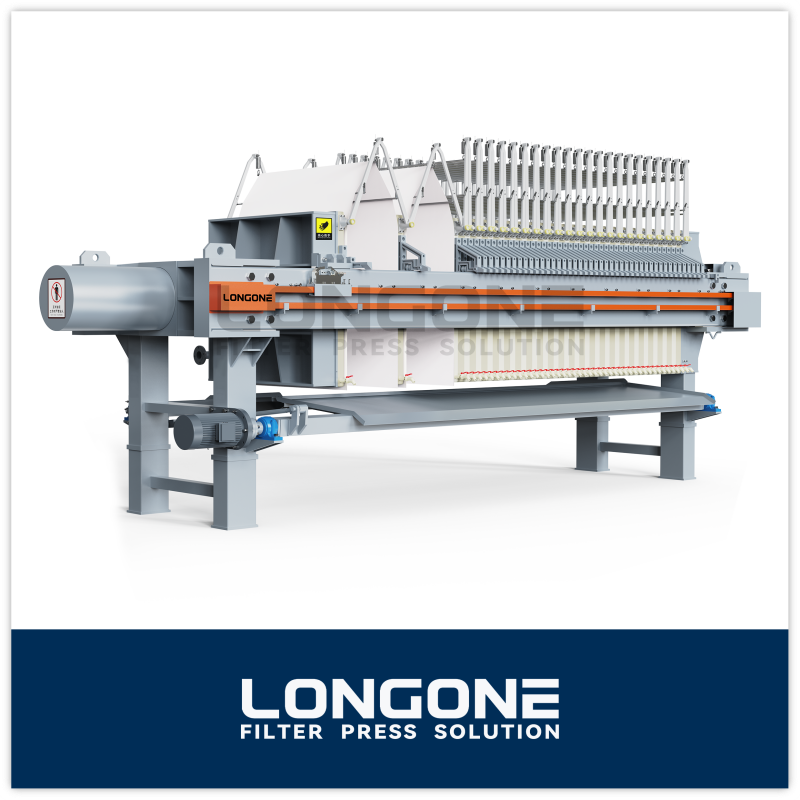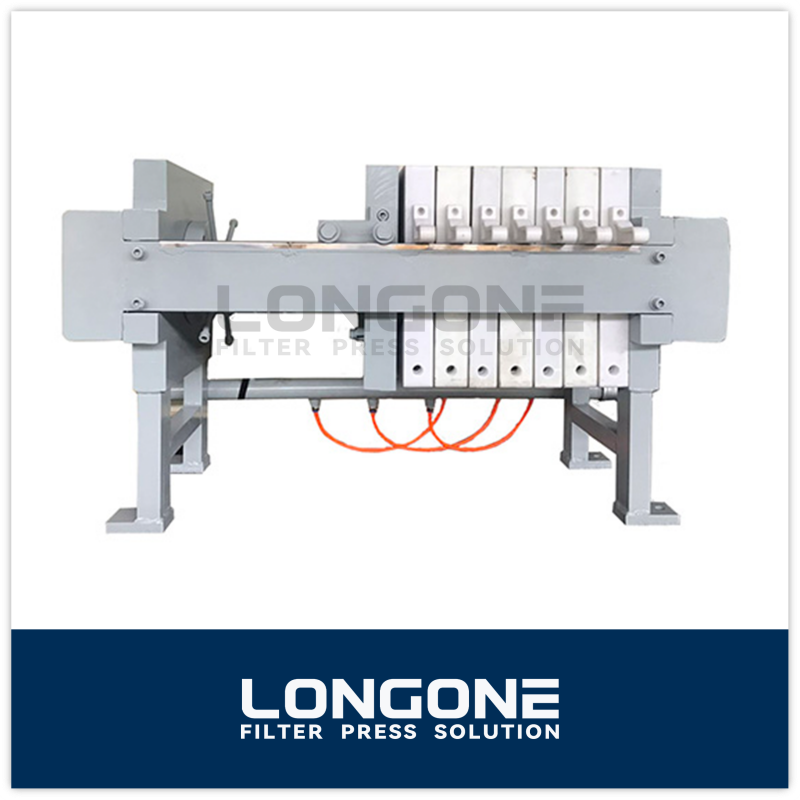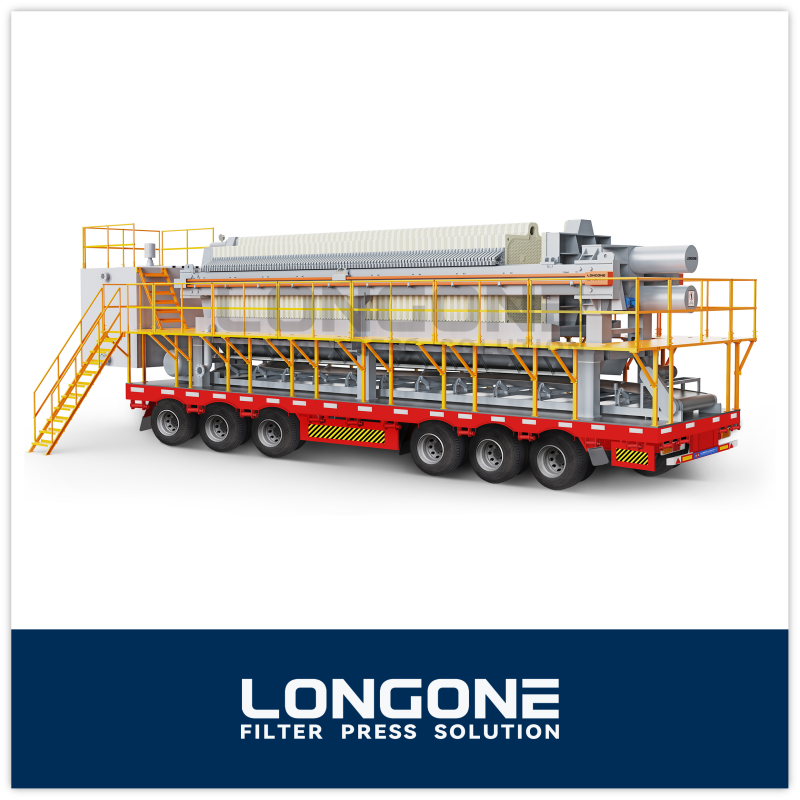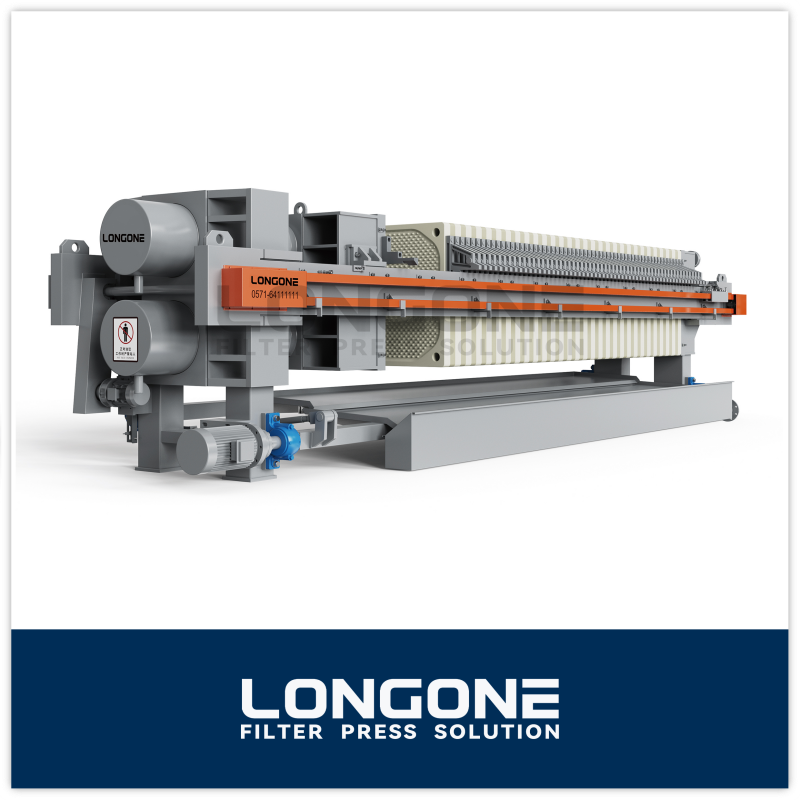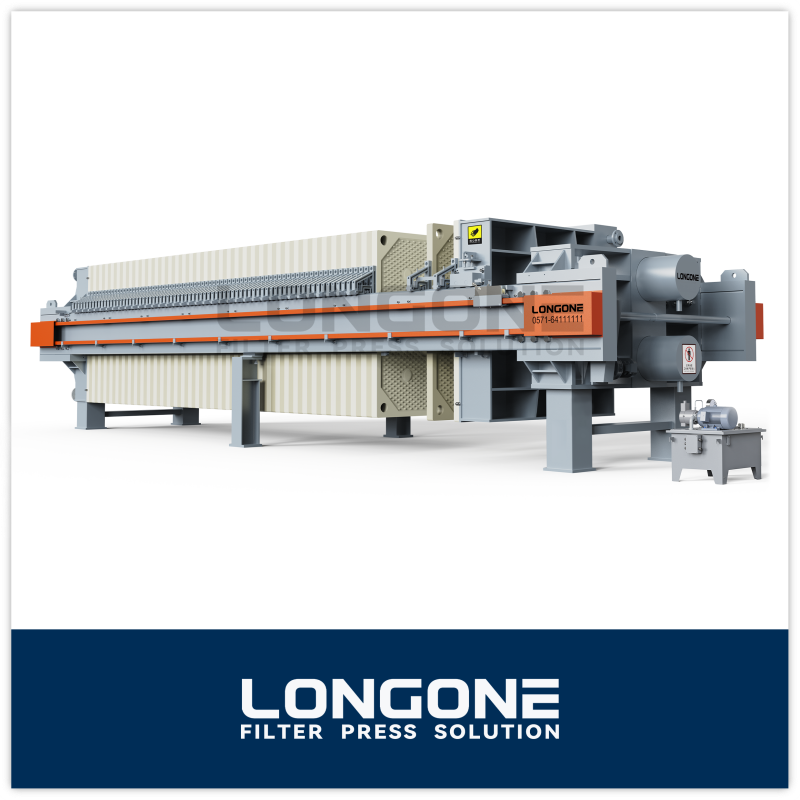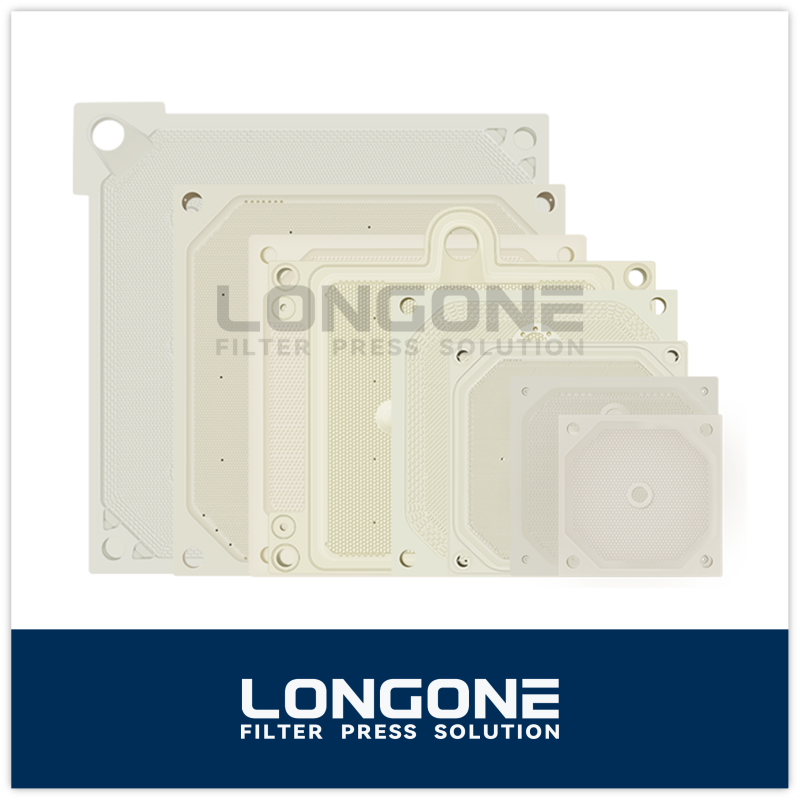The chemical industry involves numerous processes that require the separation of solids and liquids, such as in the production of pharmaceuticals, petrochemicals, paints, pigments, dyes, and food additives. One of the most efficient and reliable tools for achieving this solid-liquid separation is the automatic filter press. The Automatic chamber filter press plays a crucial role in optimizing production, improving product quality, and enhancing the sustainability of chemical processes. Below are key aspects of how automatic filter presses are applied in the chemical industry:
Efficient Solid-Liquid Separation:
In chemical production, especially during the synthesis of products such as resins, catalysts, or polymer emulsions, there is often a need to separate fine particles or precipitates from liquids. Automatic filter presses excel in these tasks by providing a high-pressure filtration process that separates suspended solids from liquid phases, resulting in clearer filtrates and drier cake solids.
The Automatic chamber filter press uses filter cloths and filter plates to create chambers where slurry is pumped in. The liquid passes through the filter medium, while the solid particles are trapped and form a solid cake. This filtration mechanism ensures a high degree of separation efficiency, which is particularly important in chemical manufacturing where the purity of the final product is crucial.
Customization for Various Chemical Applications:
The chemical industry is diverse, with different processes requiring tailored filtration solutions. Automatic filter presses can be customized with specific types of filter plates (such as CGR filter plates), cloths, and other components to meet the needs of various chemicals and process conditions. For example:
- Membrane filter plates are used for applications requiring additional cake dewatering, such as in the filtration of fine chemicals, dyes, or pigments.
- Chamber filter plates are often chosen for applications with high solid content or where lower filtrate quality is acceptable.
The adaptability of automatic filter presses makes them suitable for applications ranging from high-viscosity slurries to low-solid concentration solutions in the chemical industry.
Handling Hazardous and Aggressive Chemicals:
The chemical industry often involves the use of hazardous, toxic, or corrosive substances. Plate and Frame Filter Presses are designed to handle a wide range of chemicals safely, offering corrosion-resistant materials, such as stainless steel or coated filter plates, to withstand aggressive environments. Additionally, they can be equipped with automated control systems for safe operation, reducing the risk of human exposure to harmful substances.
For example, in the production of sulfuric acid or other highly corrosive chemicals, automatic filter presses made from resistant materials can efficiently handle the filtration of toxic slurries, ensuring both safety and operational efficiency.
Wastewater Treatment and Recovery:
Wastewater treatment is an essential process in the chemical industry to meet environmental regulations and minimize the impact of industrial operations. Plate and Frame Filter Presses are widely used in dewatering sludge from chemical plant effluents, allowing for efficient solids removal while facilitating the recovery of valuable by-products, such as metals, solvents, or acids.
The use of automatic filter presses for wastewater treatment offers several benefits:
- Reduced waste volume: Automatic chamber filter presses produce a dry cake that is easier to handle and dispose of, reducing the overall waste volume.
- Recycling of valuable substances: Solids that are separated can often be recycled or reused in other parts of the chemical production process.
- Improved filtration performance: Plate and Frame Filter Presses help achieve the required solid-liquid separation, ensuring compliance with discharge regulations.
Energy Efficiency and Automation:
In modern chemical manufacturing, there is an increasing focus on energy efficiency and automation. Plate and Frame Filter Presses contribute to these goals by providing an energy-efficient filtration process that operates at high pressures but with relatively low power consumption. Additionally, many automatic filter presses now come with fully automated systems that allow for continuous operation, reducing the need for manual intervention and minimizing labor costs.
The automation of filter press systems also ensures consistent performance, reduces human error, and enhances the overall reliability of the filtration process in chemical plants.
Environmental Benefits:
With growing concerns over sustainability and environmental impact, the chemical industry is under pressure to adopt more eco-friendly practices. The Automatic chamber filter press supports these efforts by improving the efficiency of liquid waste treatment and reducing the environmental footprint of chemical production processes. By recovering valuable materials, minimizing waste, and producing drier filter cakes, Plate and Frame Filter Presses help chemical companies comply with stringent environmental regulations.
In the chemical industry, Plate and Frame Filter Presses provide a robust, efficient, and customizable solution for solid-liquid separation. Their applications range from primary filtration in chemical production to wastewater treatment and recovery of valuable by-products. By ensuring high purity, improving safety, and enhancing sustainability, Plate and Frame Filter Presses are an indispensable tool in optimizing chemical manufacturing processes, making them an essential part of the industry’s operations.


